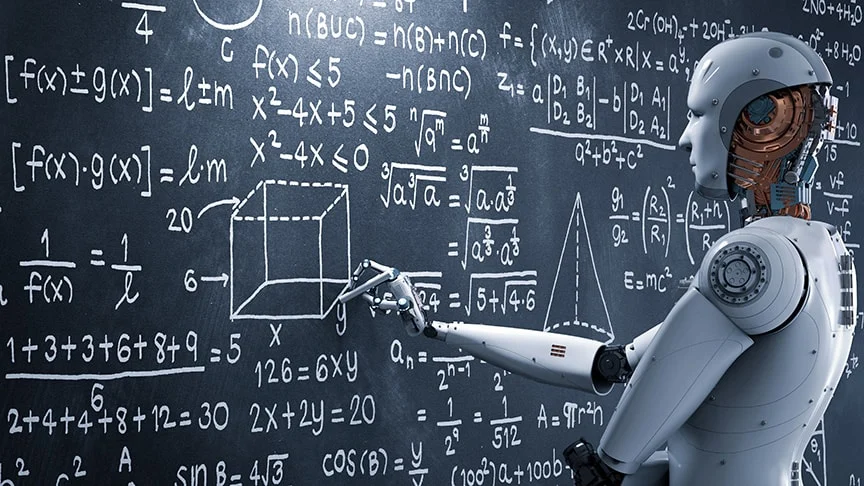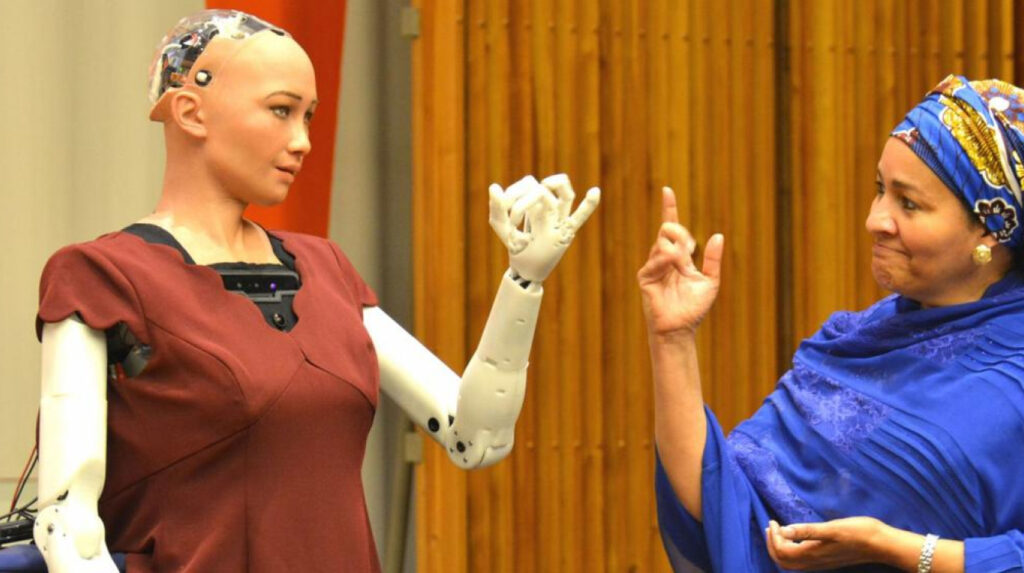Artificial intelligence had its official beginning in 1956 at the Dartmouth Summer Research Project on Artificial Intelligence (DSRPAI) hosted by John McCarthy and Marvin Minsky. It was during this event that the term ‘Artificial Intelligence’ was coined, despite the conference falling short of McCarthy expectations. A year later, society witnessed an advancement in AI enhancements of computers and improvement in Machine learning algorithms, which make it possible for AI systems to conduct tasks, discover new data insights and uncover patterns.
These successes pushed government agencies such as the Defense Advanced Research Projects Agency (DARPA) to provide funding for several institutions to conduct AI research. Unfortunately, researchers and scientists encountered obstacles that slowed down progress in AI to a crawl until the 1980’s. It was in the 1980’s that deep learning techniques, which enables computers to learn using experience, was popularized along with expert learning systems which copied the decision making process of a human expert. This expert system was heavily funded by the Japanese Government as part of their Fifth Generation Computer Project (FGCP), but was soon abandoned due to failed expectations.
 The 1990s and 2000s marked a point in AI history where numerous milestones were achieved including the success of IBM’s Deep Blue, a chess playing computer, which bested the world chess champion in 1997; and the creation of speech recognition by Dragon System which was implemented on Windows.
The 1990s and 2000s marked a point in AI history where numerous milestones were achieved including the success of IBM’s Deep Blue, a chess playing computer, which bested the world chess champion in 1997; and the creation of speech recognition by Dragon System which was implemented on Windows.
Now more than 50 years later, AI is on the rise and generates front-page media coverage almost on a daily basis. From the finance sector which uses AI to detect money laundering and other illegal activities to streaming services which utilize deep learning to enhance customer experience. AI has become so embedded in our everyday lives that most times we interact with it without even knowing.
The Opportunities
Over the past years, AI has created a plethora of opportunities, improving service delivery, productivity and daily activities which all contribute to an enhanced overall quality of life. For instance, the ability of AI to automate repetitive tasks, streamline workflows, and minimize errors, leads to increased productivity and efficiency across various sectors. In customer service, AI-driven virtual assistants and chatbots operate around the clock to provide immediate response to customer inquiries, minimizing wait times and enhancing satisfaction.
 A number of success stories highlight how we can utilize the potential of AI to efficiently solve complex problems, encouraging us to develop a thorough understanding of AI. In the healthcare sector, scientists are leveraging AI to enhance drug creation for diseases such as cancer. It has also assisted physicians in surgery and streamline patient monitoring with minimal effort. The Biopharma company, NuMedii, utilizes big data and AI to quickly identify correct integrations of drugs and diseases at a systemic level. Companies like Google, leverage AI within Google Maps to analyze data, providing real time updates on traffic conditions and delays. AI also facilitates searching in different languages, and enables the use of new inputs like camera-based inputs or hum-to-search functionality within the google app.
A number of success stories highlight how we can utilize the potential of AI to efficiently solve complex problems, encouraging us to develop a thorough understanding of AI. In the healthcare sector, scientists are leveraging AI to enhance drug creation for diseases such as cancer. It has also assisted physicians in surgery and streamline patient monitoring with minimal effort. The Biopharma company, NuMedii, utilizes big data and AI to quickly identify correct integrations of drugs and diseases at a systemic level. Companies like Google, leverage AI within Google Maps to analyze data, providing real time updates on traffic conditions and delays. AI also facilitates searching in different languages, and enables the use of new inputs like camera-based inputs or hum-to-search functionality within the google app.
In the civic space, there is an endless possibility of how AI can expand it. It has been deployed in areas such as civic education, service delivery, legal and justice reforms to improve lives and bridging the citizen-governance gap.
Why is the UN Concerned?
Despite AI being lauded as revolutionary, there are numerous and justifiable concerns about rapidly evolving technologies and the dangers it poses to society. Geoffrey Hilton, renowned as the Godfather of AI, has concerns about the potential of AI surpassing human intelligence and posing a potential threat to the future of humanity. Some of these threats we are already witnessing in real time. For instance, in 2023, a bug incident that occurred with ChatGTP, gave some users access to titles from other active users’ chat history which is indicative of a potential lack of data privacy when using AI tools. Other concerns include the potential of AI to be utilized in social manipulation to disrupt democratic processes, lead to job loss due to automation, and fuel financial crises through algorithmic trading.
 These pressing concerns served as the basis for the UN approving its first resolution on artificial intelligence. Following a unanimous decision by 193 UN member nations, the United Nations General Assembly passed the first global resolution on artificial intelligence with the aim of promoting the protection of personal data, monitoring of AI for potential risks, and preserving human rights.
These pressing concerns served as the basis for the UN approving its first resolution on artificial intelligence. Following a unanimous decision by 193 UN member nations, the United Nations General Assembly passed the first global resolution on artificial intelligence with the aim of promoting the protection of personal data, monitoring of AI for potential risks, and preserving human rights.
According to the US Vice president, Kamala Harris, the resolution paves the way for a future in AI where every country can embrace the promise of AI while effectively managing its risks.
What are Key highlights of the UN Resolution on Artificial Intelligence
The resolution highlights the importance of leveraging AI as a tool to drive progress toward achieving the U.N.’s development goals for 2030. These goals include eradicating worldwide hunger and poverty, advancing health globally, ensuring quality secondary education for all children and fostering gender equality. According to the U.N, they are experiencing a significant delay in implementing these goals and they are hopeful about the prospective role of AI in fighting this delay. Key element of the resolution includes;
- To bridge the AI divide and other digital divides;
- Address issues of accessibility, affordability, and inclusion;
- Support the development and implementation of national AI strategies by member states to align with the SDGs;
- The resolution urges the 193 U.N. member states and others to aid developing nations in accessing the advantages of digital transformation and safe AI systems.
- Investment in education and training to build skills and knowledge needed to develop and use AI;
Finally, the resolution underscores the importance of respecting, protecting and promoting human rights and fundamental freedoms through the life cycle of artificial intelligence systems.
Conclusion
 In conclusion, it is evident that AI is here to stay. This resolution represents the most recent effort in a series of initiatives by governments globally to influence the development of AI. ‘Technology is neither good nor bad, but humans make it so.’ Elizabeth McCaul, Member of the Supervisory Board of the Supervisory Board of the European Central Bank, made this statement as her central thesis at a conference on “The use of artificial intelligence to fight financial crime”.
In conclusion, it is evident that AI is here to stay. This resolution represents the most recent effort in a series of initiatives by governments globally to influence the development of AI. ‘Technology is neither good nor bad, but humans make it so.’ Elizabeth McCaul, Member of the Supervisory Board of the Supervisory Board of the European Central Bank, made this statement as her central thesis at a conference on “The use of artificial intelligence to fight financial crime”.
So far, it seems that the significance of AI surpasses the risk and the government demonstrates willingness to adapt to the changing landscape by enacting laws that protect the society from the negative impacts of AI.
You can read a copy of the resolution here.
